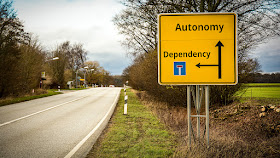This article was published by Bioedge on October 30, 2021.
By Michael Cook
Respect for autonomy, even more than fear of pain, is the fundamental reason why the argument for “assisted dying” has been so powerful. But will a decision to deliberately choose death ever be fully autonomous?
In an impressive article in Psychiatric Times, two psychiatrists, Ronald Pies and Cynthia Geppert, make a persuasive case that it is not. (Hat tip to Alex Schadenberg.)
They advance several reasons for criticising what they call “the autonomy myth”.
(1) Administrative. Patients are still caught up in a web of procedural requirements – diagnosing their illness, confirming the diagnosis, deciding whether they are truly terminally ill, writing the prescription, etc. It is more an exercise of the physician’s autonomy. “The entire process of PAS is critically dependent on the authority of powerful others who must approve (or veto) every decision along the way,” they write.
(2) Autonomy is only one of the four universal and basic ethical principles in contemporary bioethics. The others in the widely used approach of principlism, are beneficence, non-maleficence, and justice. Autonomy dominates in a consumer society. However, autonomy, as a principle of medical ethics, has a markedly Anglo-American cast. It makes an uneasy fit with other cultures, notably indigenous peoples and Latinos, especially for end-of-life decisions.
(3) The laws framed to legalise assisted suicide in the US do not take family dynamics into account when assessing whether the patient is making a truly autonomous decision. Nor do they assess autonomy at the moment of taking the lethal medication – which is the moment which matters.
(4) Rational autonomy has both a cognitive dimension and an emotional dimension. Patients who are fully aware of what they are doing may have a distorted view of reality. Cancer patients, for instance, might make erroneous assumptions like, “No one can help me,” or “No one understands what I am going through.” Absence of clinical depression does not exclude demoralisation and hopelessness. “Genuine rational autonomy and authentic voluntarism are frequently undermined by subtle cognitive and emotional factors that are likely to be missed with standard, cognitively based evaluation tools.”
Article: Assisted suicide and the autonomy myth. Do patients really have rational autonomy? (Link).


No comments:
Post a Comment